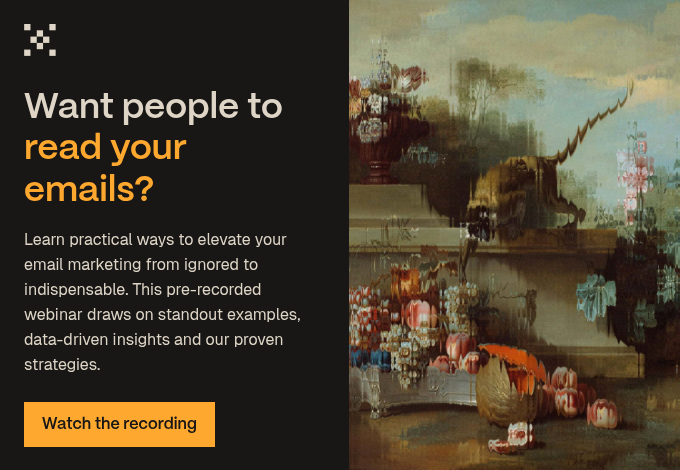Good PR is about relationships not coverage. So how do you build a good relationship with the press? And, how can you get more media coverage for your business?
I wrote the first version of this article more than a decade ago after five years' experience as a freelance journalist. Now I'm on the other side of the table, although more in marketing than PR, and I have reviewed and updated it from that perspective as well. This article was last reviewed and updated in 2022.
1. Make a hit list
Work out what audiences you are interested in reaching. Is it the general public, the financial community, your peers, customers etc. Marketing personas can help identify influencers and relevant media.
Prioritise the list. Who’s most important? Work out which media reach your target audiences. Trim the list so that you can actually communicate effectively with everyone who is on it.
It’s better to have a short list of highly focused targets that you can deal with personally than a long, impersonal, catch-all list that gets no attention at all.
2. Be yourself
The best person to do PR for your company is you. Editors talk to PR companies and marketing managers all the time and view them as, at best, gatekeepers and at worst, nuisance time-wasters.
Editors like to talk to real people. Journalists and editors are people too. If you don’t like them, be polite. If you do, be friendly. There’s no need to behave as if you are a lying politician and they are Jeremy Paxton. Learn how to give a good press interview.
3. Figure out what they’re interested in
Some magazines (e.g. “PLC Director”) have a clearly defined target audience while others talk to many different groups (e.g. “The Times”) so it is worth finding out what they’re interested in and tailoring your approach accordingly.
4. Understand their philosophy
I used to write for two magazines aimed at small businesses. One’s philosophy is “for business, not about business” and it is advice driven; while the other is more focused on individuals and their philosophy is “real people in the business world.” Clearly you would want to change your approach accordingly.
5. Know their lead times
American magazines typically have three month lead times. In other words if a journalist writes a story in March it appears on the shelves in May or June. UK magazines tend to do better at about a month; although all magazines tend to plan two or three issues ahead.
If you can give early warnings or embargoed story leads that allow them to be newsworthy when the magazine hits the shelves that is a great plus.
Some companies do this very well with confidential briefings and embargoes. If you are nervous about confidentiality or market timing, you can get a lawyer to write you an embargo confidentiality agreement which a magazine editor should sign before you disclose anything to them and which will bind them to keep it out of the press until a given date.
However, it has to be time-related. If a journalist signs an unlimited non-disclosure agreement, he might as well not be talking to you. If you have something you really want to keep secret, don’t tell.
6. Ask about the stories they are working on
Although editors are sometimes reluctant to outline their forward features list (i.e. future content plans) they will always have these in mind and may be talking to you about something that won’t get written for a couple of months.
In discussion be prepared to talk about different story ideas and be prepared to make imaginative leaps with a writer or editor as they test how your story might work in different articles.
7. Understand that journalists are doing you a favour
Or at least they think they are. If a journalist feels that they are being mucked around or taken advantage of or their time is being wasted, they’ll find another source and another story.
For example, on a typical story I used to try to contact perhaps a dozen potential interviewees but ended up interviewing three or four and using one or two in the piece.
This is because some people are very hard to deal with or don’t want to help at all and some interviewees simply don’t say anything useful. So, your job is to be responsive, co-operative and interesting!
8. Remember that their time is valuable
For a freelance journalist time is really money. They get a fixed fee to do a story and the more time it takes, the less money they make.
Staff reporters are on a salary but they are overworked and constantly looking towards deadlines.
Consequently, you should respect their time as you would an important prospective client’s. Irrelevant phone calls are a big time waster. There’s nothing more annoying than someone calling for a chat (as opposed to an urgently needed interview) in press week or when you’re racing to hit a deadline.
By all means call, but if the other person sounds harried, ask if they’re up against it and then SHUT UP.
9. Respect people's deadlines
There’s nothing more useless than an interview after a copy deadline has passed and yet companies regularly don’t reply to calls or emails until weeks or even months after a journalist's first contact.
Very often, deadlines are a matter of days not weeks. As a result, you should treat any first contact as urgent and you should be clear about any deadlines as early in the discussion as possible.
10. Be persistent but not annoying
Stay in touch, preferably by email, occasionally by phone. Keep sending in ideas.
Don’t be put off if nobody calls back. Most editors get hundreds of press release emails a day so they won’t reply to every single one.
Be clear about why you’re calling / emailing and use the subject line of the email to say so.
Editors will pay more attention to company executives than PR people.
Don’t be hurt if they don’t use an interview or publish your story and don’t harass them to do so. Editors can be a good place to start, but sometimes making contact with writers – especially good, friendly freelancers – can be more effective.
11. Use PR companies effectively (or not at all)
My view about PR companies is that they over promise and under-deliver.
That said, a good PR firm can help a journalist in several ways:
- Authenticate and introduce them to the client
- Provide pictures
- Answer stupid questions (‘how much does it cost again?’)
- Generally they’re easier to get hold of than people inside companies
- Manage product and review loans
But as for the rest, personally, I think press events, launches, brochures, badly-written bland press releases and the rest are a waste of money.
They will tell you that they have loads of contacts, great access, lots of opportunities for getting your story in front of the right people and so on. These things may be true. If in doubt, ask if you can pay by results not time and see what they say.
12. Use your website
Journalists use the Internet to do their research. Their dream is that they type the title of their article into Google and it spits out a finished text. Consequently, it is important to have a PR-friendly website. This means:
- A press link on the home page,
- Linked to a page containing names, emails and telephone numbers of one or more dedicated press contacts, and
- Optionally, a one paragraph company overview, downloadable high resolution pictures of the product, company, key personnel etc.
- Bonus: You can include an index of old press releases on this page too if you want. But the key thing is the contact details.
About half the companies I used to call didn't have any press contact information and so I had to ring the head office reception or sometimes even a booking line or something similar. This takes time and is very frustrating, especially if these lines are not set up to deal with media enquiries.
13. Be a media-friendly company
Anyone who might have to deal with a press enquiry needs to be told how to do so. This includes receptionists, front of house staff, anyone who answers the phone etc. They need to know who to put the calls through to and they need to understand that the calls are important.
Some people assume that ANY journalist is a scum-of-the-earth tabloid inquisitor and treat them accordingly.
I’ve had people be incredibly rude to me when I call up. About half the messages I left were never returned. There usually isn’t time to make a second call or try and find someone who isn’t paranoid, so you need to have simple systems in place to make sure messages get through and calls get returned.
That's all, folks!







.jpg?width=400&height=250&name=art-institute-of-chicago-wasoFWW8G1c-unsplash%20(1).jpg)